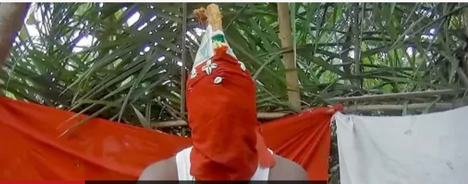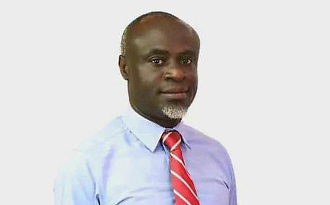‘Juju’ and Human Parts For Sale …BBC Uncovers Ritual Economy in SierraLeone

A BBC Africa Eye investigation has uncovered a clandestine network of self-styled juju practitioners in Sierra Leone who claim they can procure human body parts for ritual killings—fueling dangerous beliefs that such gruesome acts can bring wealth, influence, or supernatural power.
The undercover report, released today, highlights a worsening crisis of violent crime and impunity, where grieving families remain without justice and law enforcement agencies struggle with severe resource constraints.
The probe was prompted by the brutal and unresolved murder of 11-year-old Papayo Kalokoh in Makeni four years ago. His mutilated body was found in a well, with his organs, eyes, and one arm removed. His mother, Sallay Kalokoh, told the BBC: “They killed my child and now there is just silence.”
Belief in witchcraft is deeply rooted in Sierra Leonean culture, and the BBC found that cases with suspected ritual elements are rarely given thorough investigations. The entire country has only one pathologist serving its 8.9 million people, and police officers often hesitate to pursue cases linked to the occult due to fear, mistrust, and lack of expertise.
Posing as a politician seeking supernatural power, an undercover BBC reporter contacted two men presenting themselves as juju practitioners.
The first, a masked man calling himself “Kanu,” operated from a secret shrine in Kambia District. He boasted about serving powerful clients across West Africa and showed the reporter what he claimed was a human skull. Kanu quoted 70 million Leones (about £2,500 / $3,000) for the limbs of a woman.
The second man, known as “Idara,” operated from a suburb of Freetown and claimed to lead a network of 250 herbalists. “There are no human parts that we don’t work with,” he told the undercover journalist.
Following the BBC’s findings, police raided Idara’s residence with support from Sheku Tarawallie, President of the Council of Traditional Healers. Idara and two other men were arrested and charged with practising sorcery and possessing traditional weapons associated with ritual killings. They have pleaded not guilty and were later granted bail.
The report also reveals that even high-profile cases can languish for years. A university lecturer murdered two years ago—whose body was found buried in a herbalist’s shrine—has yet to have his case reach trial.
The investigation took a devastating personal turn when BBC reporter Tyson Conteh lost his 28-year-old cousin, Fatmata Conteh, during the course of the probe. Her body was discovered in Makeni with several teeth missing, prompting fears of another ritual killing. No suspects have been arrested.
With families traumatised, suspects walking free, and critical cases left unresolved, the BBC investigation exposes a disturbing and largely hidden epidemic of ritual violence—driven by superstition, emboldened by criminal networks, and compounded by severe gaps in state capacity.





